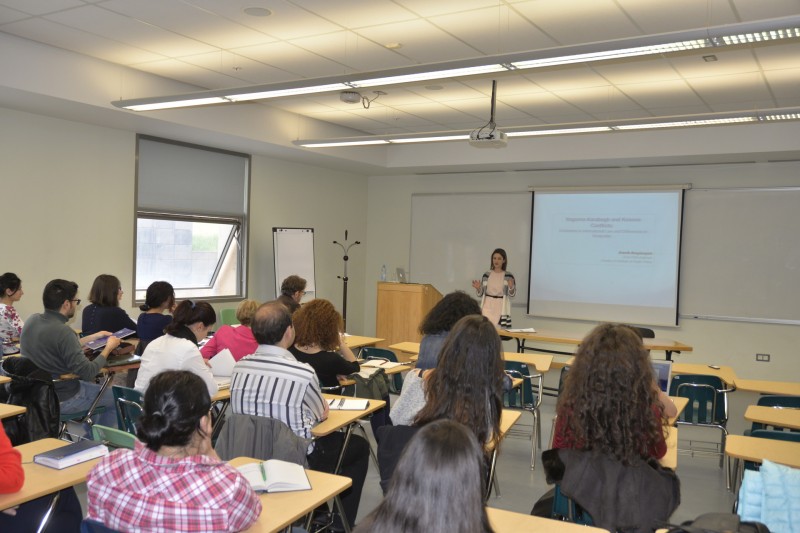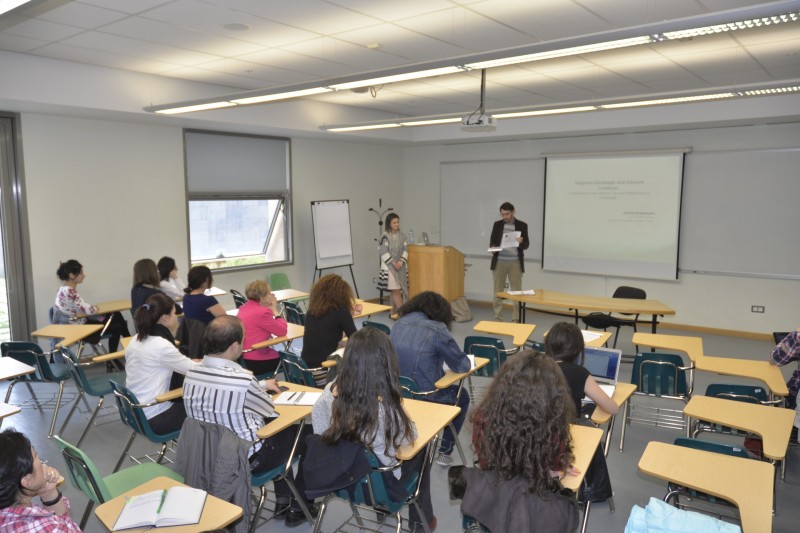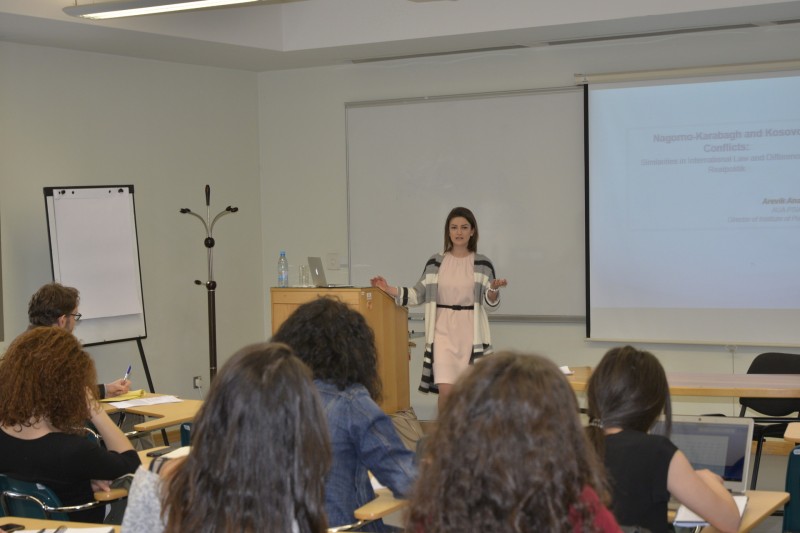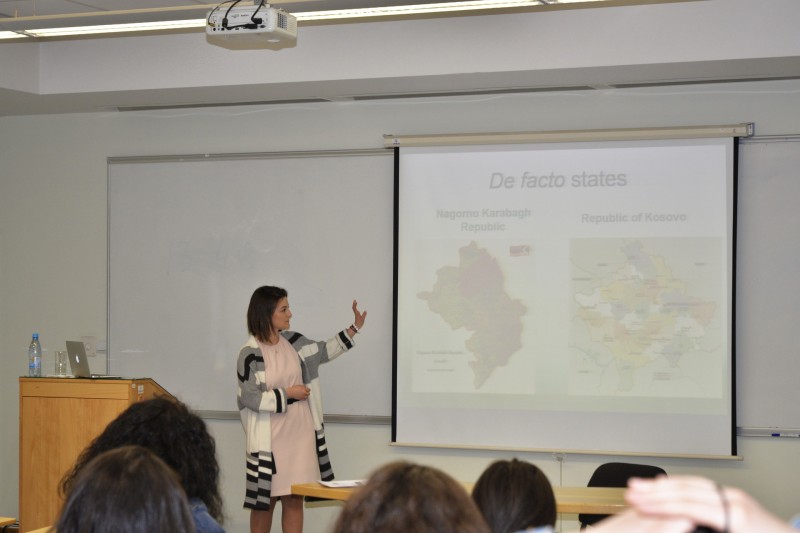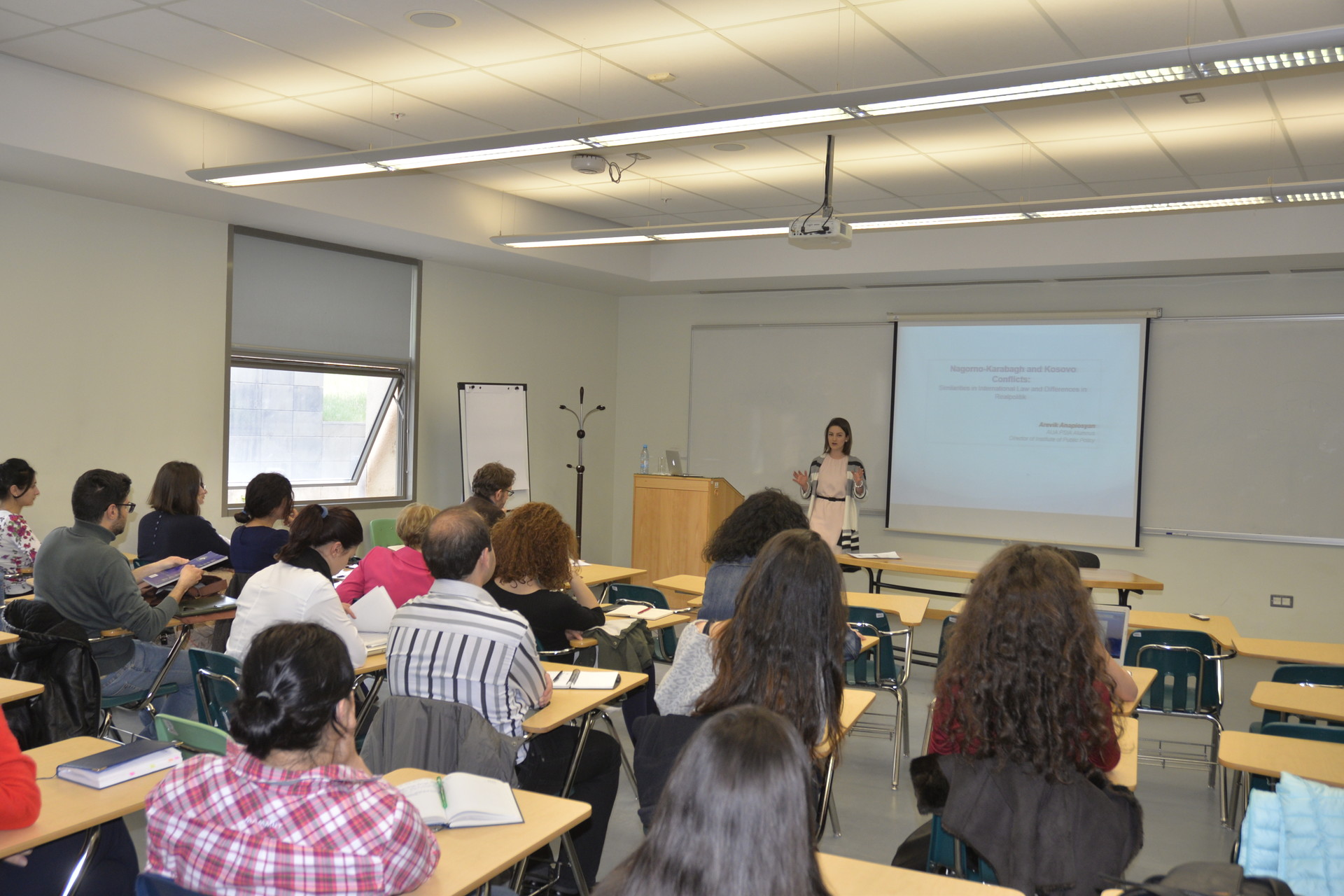
PSIA Seminar: Nagorno-Karabakh and Kosovo Conflicts: Similarities in International Law and Differences in Realpolitik
< 1 min readYEREVAN, Armenia – On April 12th, the American University of Armenia (AUA) Political Science & International Affairs program (PSIA) hosted a public seminar on the similarities in international law, and the differences in realpolitik between the Nagorno-Karabakh and Kosovo conflicts. The discussion about the two narratives was led by Arevik Anapiosyan, AUA PSIA alumnus, Ph.D, Yerevan State University.
There are a number of reasons why the international community perceives the Nagorno-Karabakh and Kosovo conflicts differently. From the international legal perspective, both cases refer to de facto states seeking or having sought international recognition. The analysis of de facto states usually starts with the discussion of the criteria of statehood, including the evolution of those criteria since the Montevideo Convention on Rights and Duties of States. Still, understanding whether an entity is a state is crucial for promoting the case for international recognition.
While recognition implies fulfillment of certain international legal criteria, it is a political decision. Hence, if interpreted legally, the conflicts under discussion share a similar legal framework, and the political context of the two conflicts varies considerably. The foreign policy, security and strategic interests of the countries involved in these conflicts locally, regionally or internationally, determine the international political framework for the conflict resolution. Consequently, the peaceful resolution of these conflicts hinges on the interests and the willingness of the external actors related to the conflicts.
Information on previous and upcoming PSIA Seminars can be found at: http://psia.aua.am/psia-seminars/.
Founded in 1991, the American University of Armenia (AUA) is a private, independent university located in Yerevan, Armenia and affiliated with the University of California. AUA provides US-style education in Armenia and the region, offering high-quality, graduate and undergraduate studies, encouraging civic engagement, and promoting public service and democratic values.

